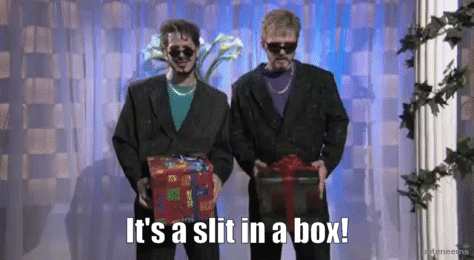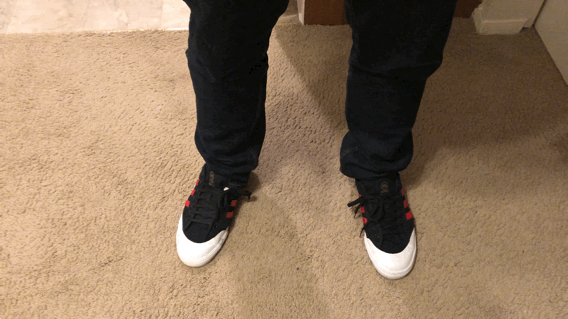Dear Jerxy: Propless Mentalism
/Dear Jerxy: I was wondering if you had come around at all on propless mentalism. I know in the past you've said you didn't like it, but it's a passion of mine and it has evolved a lot in recent years. Are there any propless routines you've used and liked? And do you have any thoughts on presenting propless routines? As much as I like them they don't always get the reaction I would expect.
Signed,
Need One Propless Recommendations Or Performance Suggestion
Dear NO PROPS: First, thanks for putting effort into the name initialism! That made me happy.
Second, I don't think it's true to say that I don't like propless mentalism. It's just that "propless" isn't a consideration for me (much in the way that "sleight-free" isn't something I care about with card magic). It doesn't matter to me because I don't think laypeople think in terms of "props" when it comes to mentalism. I think they think in terms of process.
In other branches of magic, I have no issue with process. I think it can be fine, I think it can even enhance the experience sometimes. I have an entire performance style called The Engagement Ceremony which is designed for the performance of process-heavy tricks. But that style is predicated on shifting the power of the effect off yourself. We would expect an "old Afghani synchronicity ceremony" to have a process to it. But if you're presenting this as "I'm going to read your mind," then you own whatever process comes after.
So, on the occasions I do perform mentalism, I look for process-less mentalism, not prop-less mentalism. That's not to say the act of mind-reading can't involve a process, but if it does, I want it to be a process I've created for theatrical purposes, not a process dictated by the method itself.
In general, I agree, the fewer props the better, but not to the point where it creates a significantly greater process. Using a pad of paper and a pencil (and a nail-writer) to guess a number someone is thinking of is more natural and "invisible" to the spectator than making them go through a mathematical process without the pad and pencil.
To be fair, I also think propless mentalism is evolving and while I don't follow that branch of the art too closely, I have some friends who do and it's clear that the people creating the material are producing stronger effects now than were available in the past.
If you're a propless fanatic keep me updated on anything I really need to check out in this arena.
Ultimately, I think the best course of action is to obtain a well-rounded knowledge of the best of everything (for the sake of your audience). Not simply avoiding or embracing anything propless. But instead knowing the best propless stuff, and having that in your arsenal with your marked ESP cards, invisible deck, and nail-writer. Only the weird dogmatic nonsense either way is going to hold people back.
NO PROPS also wrote:
"And do you have any thoughts on presenting propless routines? As much as I like them they don't always get the reaction I would expect."
I don't have any general presentation thoughts in regards to propless mentalism, but I think I do know why it often gets a reaction that seems muted compared to the purported effect. (And this can be seen even in the videos made by the pioneers in propless mentalism.)
I will tell you a story, and this is something I hinted at years ago in another post, but I didn't go into details because I was worried the person I was writing about would find this site somehow. I'm less worried about that now, but I'm still going to tip-toe around some of the details.
About five years ago I met a fellow magician, I'll call him Oscar, and we had very different taste in tricks. He was very much into propless mentalism and assured me he had "never been busted." And he made a convincing argument to me about what is more impressive: some sleight of hand trick with cards or coins OR telling someone a PIN number or a word they were just thinking of. Obviously it seems the latter would be the way to go.
And yet one time I met his sister and her fiancé while we were waiting for him to show up for dinner and I performed an early version of "A Firm Background in Remembering" from The JAMM #2. This is a simple coin trick but they both had strong audible reactions to it. And I said something like, "Oh, I'm glad you liked that. Sometimes people get burnt out on seeing magic when they have a family member who performs."
And Oscar's sister said, "Oh... his tricks are... different." She went on for a bit but the part I remember is her describing the tricks as involving a lot of "asking questions and looking for clues." And she was kind of being dismissive of his tricks in a way.
Later I would see him perform for the two of them and their response was positive but kind of subdued. Like a disinterested uncle reacting to his nephew demonstrating a shitty somersault. "Oh, that's great." I could see why Oscar felt his tricks were working, because they weren't blatantly calling him out. But at the same time, if they really felt that, for instance, he had just told them a pin code that only existed in their mind, shouldn't their reactions have been significantly stronger?
It's not that they were humoring him with their reactions, they were being nice to him because they cared about the guy and didn't want to make him feel bad.
In most circumstances in life, that would be a good thing. But if you're trying to hone your material, and you're a social magician who performs for family and friends, and they don't want to be "mean" to you... well, then it can be somewhat detrimental because honest feedback is required to create really strong material.
When people get into magic, often their big fear is that they're going to get busted. But honestly you should want the kind of dynamic with your audience where they're not afraid to point out a discrepancy or catch you on something shady you're doing. The much more insidious problem is when people don't bother telling you what's working or not working. They just kind of baby you along.
This may sound like a small issue, but I don't think it is. I think it's pervasive. I think the majority of people you perform for are nice and won't give you a critical response, especially if they feel your ego is tied up in the performance.
And I think this is significantly more true for propless mentalism because it demands such an earnestness in presentation (most often). Your presentation is generally tied so closely to the process and it only works if you're sincere and they're honest with their responses and they play along. And that's why when you watch some of these videos of propless performances they can seem serious, almost to the point of being somber in some weird way. And when you're taking it so seriously it can make it hard to get an honest reaction from people, because only a jerk will take a shit on something you seem so invested in. And that's why you end up with these odd reactions sometimes where they give a positive, but underwhelming response. I'm not saying they're not fooled. I just don't think they're fooled as intensely as you'd like them to be.
I think I have a way around this issue though. And on Wednesday we'll talk about developing a resource to help you identify and/or create much stronger material in the area of propless mentalism or any other branch of the art.









